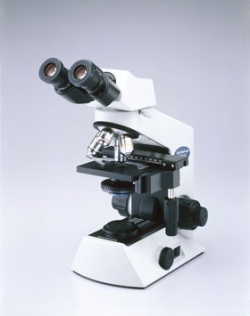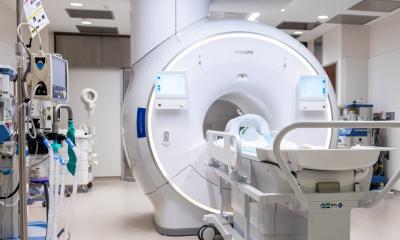SECARS microscopy – a window to the world of molecules
SECARS microscopy, a procedure which is based on quantum effects, with which certain molecules can be monitored virtually in real time, turns out to be a highly sensitive tool for the non-invasive research of the most varied diseases and may supplement the medical diagnosis tools of CT and MRI in the future.

This is what research conducted by Dr Lina Machtoub (Innsbruck Medical University) reveals, which is presented today at the Meeting of the European Neurological Society (ENS 2010) in Berlin. At the same time, the much-watched work provided new insights into the mechanisms of amyotrophic lateral sclerosis (ALS), a previously incurable degenerative nervous diseases, which confines star physicist Stephen Hawking to the wheelchair, for instance.
SECARS microscopy – a window to the world of molecules
SECARS stands for Surface-Enhanced Coherent Anti-Stokes Raman Scattering, a highly complex procedure during which the vibrations occurring at the joints between the atoms of a molecule and typical for every substance are enlarged 100 billion to 1 trillion times. In connection with certain nanoparticles, which work like contrast agents, metabolic processes can be monitored, for instance in the brain. The approach holds significant potential as a strategy for biomedical imaging of living subjects and shows promising diagnostic capabilities for future in vivo clinical studies.
Tracing the riddles of amyotrophic lateral sclerosis (ALS)
ALS is a degenerative disease of the motoric nervous system, whereby so far unknown causes result in those neurons to die which are responsible for the transmission of movement pulses to the body. This results in a progressive and ultimately complete paralysis. In Germany, some 6,000 and in Austria some 600 suffer from this condition. Famous people affected are, in addition to the British physicist Stephen Hawking, the German painter and sculptor Jörg Immendorff and the former German football player Krzysztof Nowak.
The Innsbruck study, in collaboration with Prof. Pavle Andjus (University of Belgrade), compared metabolic processes in the brain of healthy rats with those of ALS-infected rats, while the results of the SECARS microscopy were verified in histological analyses.“First, we were able to prove that our interpretation of the SECARS results with the histological findings really do coincide and that SECARS microscopy can therefore be regarded as a reliable, non-invasive diagnosis tool,” says Dr Lina Machtoub. “Second, important findings on the characteristics of ALS were also gained: We were able to confirm the hitherto unproven hypothesis that it goes hand in hand with increased lipid deposits and also determines the regions in which these abnormal concentrations are found, i.e. mainly in the brain stem and midbrain.”
New findings give hope for new treatment options
The Innsbruck study may be a further step towards an effective remedy for those affected. Dr Machtoub: “The better we understand the causes of amyotrophic lateral sclerosis, the better we will be in a position to develop alternative treatments against it.”
picture source: Olympus
24.06.2010





